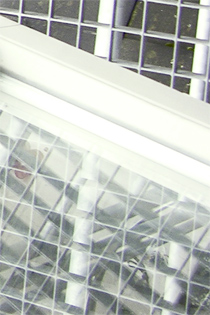Sonia Dheur et Hervé Rakoto Ramiarantsoa | 17.11.2015
Forte de ses avancées techniques récentes et mettant en avant son souci de la santé individuelle humaine, la génétique ne s’est jamais autant intéressée à la relation entre l’apparence physique ou le comportement et la singularité génétique. Dans une approche interdisciplinaire critique et réflexive de l’écriture de l’histoire du métissage à Madagascar par la génétique des populations, nous confrontons l’ordre biologique à l’ordre social, en replaçant les recherches récentes dans la réalité sociale malgache. En abordant la question des [...]
Sébastien Munafò | 10.11.2015
The thought that information and communications technology can lead to reducing spatial heterogeneity and therefore mobility demand is recurrent. It goes hand in hand with any major technological advance in this field. Faced with this attractive idea, scientists are sometimes invited to highlight empirical evidences that are much more counter-intuitive. [...]
Du milieu à l’instrument et au modèle.
Adrien Gey | 12.10.2015
This paper tries to understand and describe the place that nature occupies in sustainable city projects, and compare it with classical planning theory. We’ll see how natural elements have been constituted as a mechanical “environment”, that is to say as a frame influencing users, and a tool by prospective planning, before being considered a “model” by the green urbanism that took place in the “Grand Paris” consultation of 2009. [...]
Denis Retaillé | 14.09.2015
Ritornellos reassure ; monolanguage frightens. Territories are incantatory references invoked by the manipulators of symbols who seek to mobilize arguments thanks to the idea of naturality. But what is a « territory » if not an act of power ? This paper, which is briefer than a manifesto, suggests we look closer at the making of a dangerous icon whose meaning has been lost because of the multiplication of its significations. [...]
Odette Louiset | 08.09.2015
Against one-way comparisons, which are based on familiar categories and consist in deducing, from these categories, the quality of the studied objects ; for a comparison which avoids « false transparencies » that are produced by situated norms : thinking the tension between what is common and singular without limiting it or hiding it, and freeing ourselves from traditional models (patterns or ideals). Conceptualization is understood as openness, as a horizon, on the condition that we don’t confuse concepts [...]
Choisir son rythme en Suisse et à Madagascar.
Jean-Baptiste Bing et Muriel Monnard | 01.09.2015
It is in the classroom that children must fulfil their role as pupils. There, time management is an important issue. Outside the classroom, children walk through a plurality of transitional spaces such as corridors and playgrounds, or streets on the way to school. These areas are related to a particular time that is neither entirely free nor really supervised by adults and that children may appropriate as “their” time. Changing rhythms is therefore a way of expressing agreement and/or [...]
Agnès Bergeret, Jean-Jacques Delannoy, Emmanuelle George-Marcelpoil, Delphine Piazza-Morel, Susanne Berthier-Foglar, Anouk Bonnemains, Philippe Bourdeau, Mélanie Duval, Hugues François, Sabine Girard, Denis Laforgue, Pénélope Lamarque, Sophie Madelrieux et Sandrine Tolazzi | 17.07.2015
Cet article propose de tirer les enseignements de l’élaboration et l’expérimentation, par un groupe de travail pluridisciplinaire du LabEx ITEM, d’un dispositif méthodologique transdisciplinaire et d’un outil-frise, autour d’une approche processuelle des changements dans les territoires de montagne. Les éléments formels nécessaires à sa construction ont permis d’établir un langage commun et de faciliter le dialogue interdisciplinaire. Par la multiplicité de ses ingrédients, leurs temporalités et leurs interactions, le positionnement d’événements, de séquences et de liens dynamiques, cet outil-frise [...]
Boris Beaude | 07.07.2015
L’absence de clarté en sciences sociales sur un ensemble de problématiques fondamentales pose problème. Qu’est-ce qu’une science qui n’a pas vocation à expliquer, qui n’est pas vraiment expérimentale, dont les énoncés ne peuvent pas être sérieusement réfutés ou comparés, dont les expériences ne sont pas réellement reproductibles, qui est exceptionnellement cumulative, qui ne peut concevoir des lois ? Et qui, finalement, si elle existait, assimilerait les sujets à des objets, c’est-à-dire à des réalités comparables dont l’action est [...]
Chronique d’une enquête.
Marie-Thérèse Têtu | 02.07.2015
In 2009, Lyon’s prisons closed. The Montluc prison was the only one that was saved from demolition and turned into a memorial to the victims of the Nazi repression. By so doing, the other stories and memories of this prison, that operated from 1921 to 2009, were « forgotten », including those of the Algerian War. This article retraces the investigation that was conducted by sociologists who followed « the making of » of this heritage process and sought [...]
Luca Pattaroni | 23.06.2015
With this glossary, written in the framework of an exploratory research on the relation to the future, we attempt to draw the conceptual network that allows for a “pratical understanding” of the future (Ricoeur 1983). A conceptual network that enables to answer the “what”, “who”, “why” and “how” of human actions. This glossary evolves around two axes : on the one hand, the way people are cognitively able to conceive of a future and, on the other hand, the [...]


